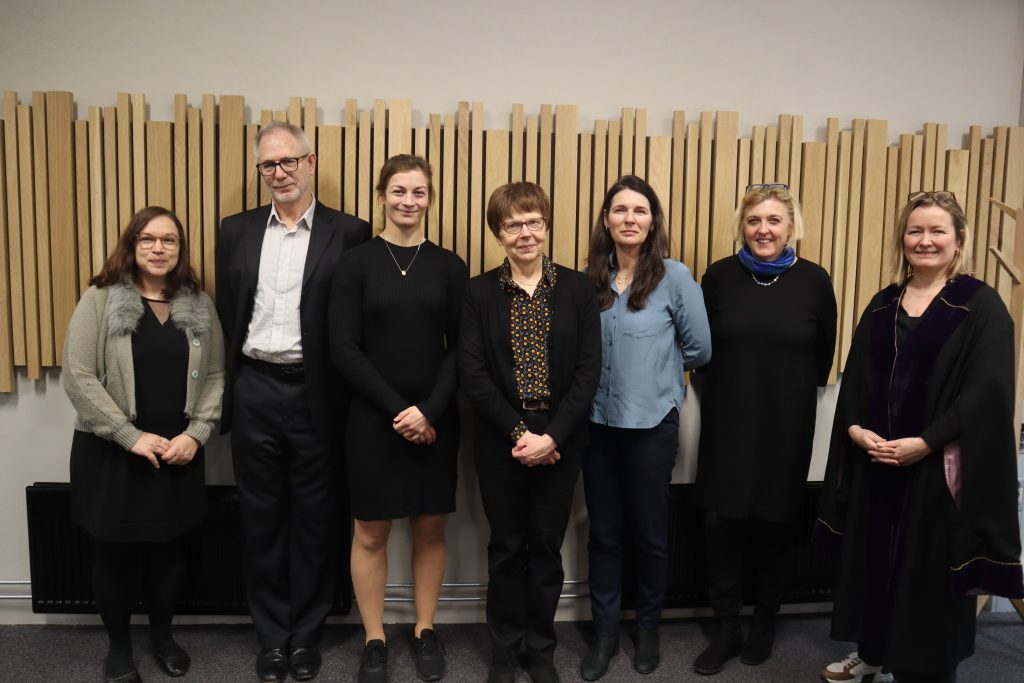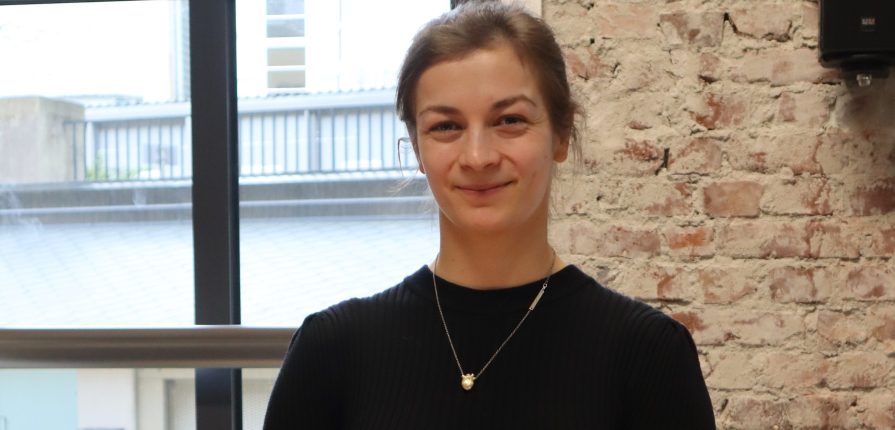PUBLIC DEFENCE: We are immensely happy to announce that our PhD-fellow Barbara Ruiken successfully defended her dissertation “Discretionary Decision-Making in Child Protection Care Order Cases” and has therefore acquired a PhD at the University of Bergen. The defence took place on 16.4.2024.
Ruiken’s dissertation asks the questions: are similar cases equally reasoned and justified? Are the accounts the decision-makers provide suitable to hold them accountable, and what are possible implications for the democratic system? And lastly, what are possible implications of the findings for the predictability of case treatment?
Through the analysis of written decisions on care orders from 8 European countries (Austria, England, Estonia, Finland, Germany, Ireland, Norway and Spain), Ruiken examines how equal treatment is safeguarded in decisions about taking over care of newborn children. It is important for judges to use discretion to make good decisions, but this may harm the process’s equal treatment, predictability and accountability.
Ruiken’s research shows that, to some extent, consideration of equal treatment is respected, however, various conditions, such as discretionary assessment of parenting skills or the child’s needs, may have a different impact on the outcome of the case. Additionally, it is shown that the law is used in different ways which can be a problem in terms of equal treatment.
This thesis discusses limitations of the judges’ discretion to increase equal treatment. She also assesses the quality of judgments and discusses implications for accountability and predictability. Ruiken argues that it is necessary to increase standards for written judgements, which will increase transparency and equality within the process.
The Committee leader for the defence was Professor II Katrin Križ, from the Department of Government, University of Bergen, while the defence opponents were Professor Bruce Wilson, from the University of Central Florida, and Professor Daniela Reimer, from Zurich University of Applied Sciences. Ruiken received congratulations from the opponents for her outstanding defence and the valuable insights offered by her dissertation. They additionally suggested potential ideas for further research on the subject.

Foto: Jenny Guo Strømsnes / UiB
Ruiken’s insightful research and dissertation has already contributed to the knowledge on child protection and care order cases, thereby enhancing the successful defence of her thesis. We extend our heartfelt congratulations to Dr. Barbara Ruiken on this significant achievement.
The dissertation is available in digital print here.
Article I: Ruiken, B. (2022). Analyzing decision-maker’s justifications of care orders for newborn children: Equal and individualized treatment. Journal of Public Child Welfare, 0(0), 1–24. https://doi.org/10.1080/15548732.2022.2158990
Article II: Ruiken, B. (2023). A tale of two cases – investigating reasoning in similar cases with different outcomes. European Journal of Social Work, 0(0), 1–18.
Article III: Ruiken, B. (in preparation for publication). Accounting for the use of legal standards: The Good, the Poor, and the Adequate.

